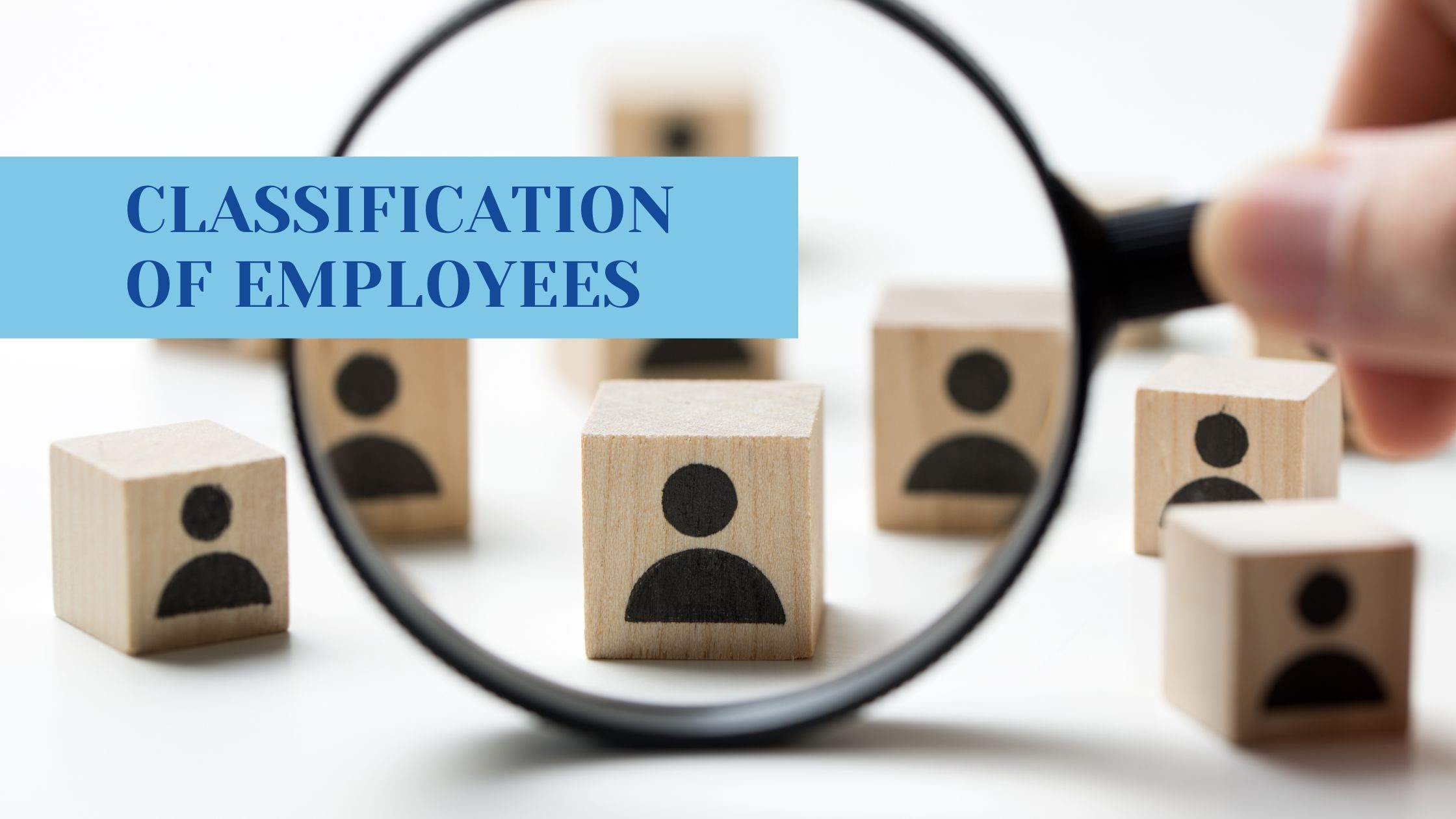Employment Laws: Why Do They Matter?
Ever heard of the saying, “with great power comes great responsibility?”
There are always trade-offs in life, the typical “you win some, you lose some” scenario. This order of things is important because it strikes a balance in an otherwise unfair situation between people of different standings, like an employer and employee.
To illustrate: Periods of growth are particularly exciting for small and midsize businesses, but they also bring new HR challenges. Along with adding employees—which may change the feel of your culture as well as your floorplan—your organization may become subject to federal and state laws that take effect once you have a certain number of employees.
Most employment laws apply to organizations based on the number of people they employ, so as you grow, it’s vital to keep up-to-speed on any laws that newly apply or will soon apply to your organization to avoid hefty fines of up to $10,000.

Some employers may think that they can get off the radar by engaging the services of independent contractors, instead of hiring employees. Some may even purposely misclassify employees to get away with legal requirements like the payment of minimum wage and overtime pay under the Fair Labor Standards Act (FLSA).
However, it doesn’t matter what you call them since the law has set parameters on the classification of workers as either exempt or non-exempt, depending on their relationship to the business.
Exempt employees are those with predetermined salary paid out on a regular basis. They are not qualified for minimum wage and overtime pay. Meanwhile, non-exempt employees are paid an hourly rate and eligible for minimum wage and overtime pay for hours worked in excess of 40 hours a week.

Here are some of the major employment laws that you need to look out for and the determinants to know if your business is covered.
Fair Labor Standards Act (FLSA)
Who Are Covered: Employers with an annual sales total of $500,000 or more or those engaged in interstate commerce.
The FLSA defines the standards for minimum wage, overtime pay, recordkeeping, and youth employment that must be complied with by businesses within its ambit.
You may be misled into thinking that you are not covered by this law since your business is still relatively small. Contrary to how it may seem, the FLSA actually applies to almost all because of the broad definition of “interstate commerce” as interpreted by the courts. For example, if you regularly send and receive mail letters to and from other states, or use company telephones for interstate business calls and orders, then you are deemed to be engaged in interstate commerce.
Occupational Safety and Health (OSH) Act
Who Are Covered: Businesses with more than ten employees are required to keep OSHA injury and illness records.
The OSH Act is a law that aims to establish and enforce safety and health standards in the workplace through the Occupational Safety and Health Administration (OSHA).
Generally, all private sector employers and employees, with a few exceptions, are covered by this law. However, if you only have ten or fewer employees most of the year, you don’t have to maintain injury and illness records, except when the OSHA or the Bureau of Labor Statistics requires you to do so.
Worker Adjustment and Retraining Notification Act (WARN)
Who Are Covered: Employers with at least 100 employees, excluding workers with less than six months on the job, and part-time employees (those who work less than 20 hours a week).
The WARN Act seeks to protect workers and their families and provide them with ample transition time to prepare for a sudden loss of employment. Under it, employers are mandated to notify affected employees 60 calendar days prior to plant closings and mass layoffs affecting 50 or more employees at a single site of employment.
Laws Against Workplace Discrimination
To understand the scope of many of the federal laws discussed below, employers need to know the definition of discrimination. In the context of employment law, discrimination means taking any adverse (or negative) action against an employee. Adverse action includes but isn’t limited to the following:
- Failure to hire
- Failure to train or offer an opportunity
- Failure to promote
- Failure to offer an accommodation required by law or offered to a peer
- Offering a lower wage or salary than to a peer
- Offering fewer benefits than to a peer (e.g. vacation, 401(k), bonuses, covered expenses)
- Taking more aggressive disciplinary action, including any of the above, than with a peer
- Reducing pay or benefits
- Transferring to a less desirable position, shift, or location
- Demotion
- Termination
Americans with Disabilities Act (ADA)
Who Are Covered: Businesses with at least 15 employees.
The ADA protects qualified individuals with disabilities from unlawful employment discrimination and requires an employer to make reasonable accommodations for disabled individuals, unless doing so would place an undue burden on the employer.
Title VII of the Civil Rights Act
Who Are Covered: Those with at least 15 employees.
Title VII prohibits discrimination on the basis of race, color, national origin, religion, and sex. Note that a number of courts have ruled that sex includes sexual orientation and gender identity, and the Equal Employment Opportunity Commission, which enforces Title VII, also operates as if sex includes sexual orientation and gender identity.
Pregnancy Discrimination Act (PDA)
Who Are Covered: Those employing at least 15 workers.
The PDA amended Title VII of the Civil Rights Act to specifically protect individuals from discrimination based on pregnancy, childbirth, or any related medical conditions. It defines pregnancy as a temporary disability for which reasonable accommodations are required.
Genetic Information Nondiscrimination Act (GINA)
Who Are Covered: Employers with at least 15 employees
GINA makes it unlawful for employers, employment agencies, unions, and training programs to discriminate against an individual because of genetic information. Genetic information most commonly comes to an employer as family medical history, but it also includes DNA information acquired through testing
Age Discrimination in Employment Act (ADEA)
Who Are Covered: Businesses with at least 20 employees
The ADEA prohibits discrimination against those 40 and older, as well as age preferences or limitations in both posting and practice. It forbids mandatory retirement ages except for certain executives and high policymakers who are over 65 and entitled to deferred compensation of a minimum dollar amount per year.
Family and Medical Leave Act (FMLA)
Who Are Covered: Employers employing at least 50 workers
FMLA allows qualified employees to take job-protected leave to care for themselves or a close family member with a serious health condition. It also prohibits discrimination or retaliation against employees for taking leave under the Act.
Employer Mandate of the Affordable Care Act (ACA)
Who Are Covered: Those with at least 50 full-time equivalents.
The Employer Mandate requires employers with 50 or more full-time equivalent employees (30+ hours per week) to offer minimal essential health coverage at an affordable rate to all full-time employees.

Some states are heavy regulators (think West Coast and Northeastern states, in particular), while others are content to add little to what is required by federal law. The laws below are either relatively common or gaining steam in state legislatures, so they should be on your radar.
Workers’ Compensation
Workers’ compensation is insurance that compensates employees for work-related injuries and illnesses, usually covering medical expenses, missed wages, vocational rehabilitation, and in the worst case, death benefits.
The minimum employee count varies per state. For example, in California, all employers, regardless of the number of employees, are required to provide workers compensation, while in Wisconsin, this requirement only sets in upon hiring your third employee.
Additional Protected Classes
Many states have their own civil rights laws that look much like Title VII, but often take effect at a lower employee count and include additional protected classes. Some of the most commonly added protections are for sexual orientation, arrest records, off-duty use of legal products, consumer debt garnishment, credit information, and marital status.
Pregnancy Accommodation Expansions
These laws require that employers provide specific workplace accommodations, even if the employee isn’t suffering from a pregnancy-related disability. Many of the accommodations must be provided without a doctor’s note, such as additional food and water breaks, seating, and reasonable lifting restrictions. Employers may still ask for a note for other accommodations, such as flexible scheduling or light duty, but an employee will not need to prove that they are disabled. Employers do not need to provide accommodations if doing so would create an undue hardship, but the significant difficulty or expense standard for undue hardship is hard to meet.
Paid Sick Leave
The paid sick leave laws passed so far share some common elements. Notably, employers are typically required to offer at least one hour of paid sick leave for every 30 or 40 hours worked, and employees can use their leave to care for themselves or a family member (most states also allow the time to be used in case of domestic or sexual violence). The laws vary most—though still not dramatically—with respect to which employees are eligible and when, and what kind of documentation can be required to prove that employees used the leave for a permissible purpose. Some states allow smaller employers to provide unpaid leave.
Criminal History Inquiry Bans
Often referred to as “Ban the Box,” these laws prohibit employers from asking about criminal history either until an interview is scheduled or a contingent job offer is made to the candidate. There may also be specific notice requirements if an employer decides not to hire an applicant because of their criminal history.
Salary History Inquiry Bans
These laws prohibit employers from inquiring about a candidate’s current or previous wages, whether directly or through a third party. Some salary history inquiry bans are stand-alone laws, while others are part of larger equal pay acts.
Social Media Privacy
Most of these laws share some themes. First, they prohibit employers from requiring or requesting that employees or applicants disclose their login credentials. Second, the laws say employers can’t require or request that an employee or applicant access their personal social media in the employer’s presence or add the employer (or one of their employees) to their contacts or friends list. Third, the laws prohibit retaliation or failure to hire, should an applicant or employee refuse such requests for access.

Instead of fearing regulation, it should be a welcome change that indicates how you’re now in a better position to take responsibility for your employees and your community.
We understand that the list of employment laws that may apply to you seem to just go on and on, which makes it hard to keep track of them.
That’s okay. We’re here to help! Here’s what we can do for you:
- Analyze your current workforce and growth;
- Discuss applicable employment laws;
- Work on a checklist and monitoring tool for compliance;
- And more!








